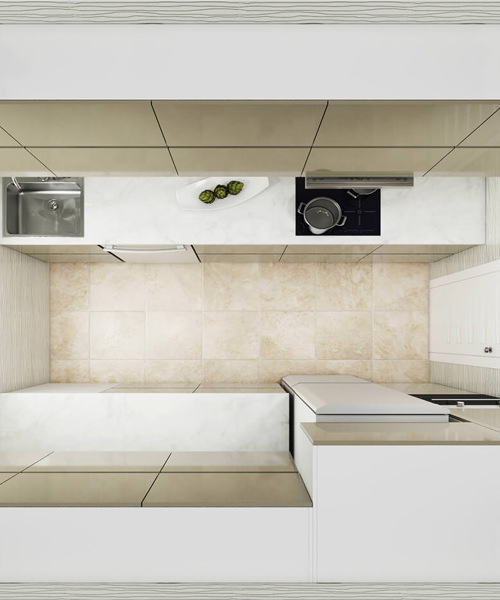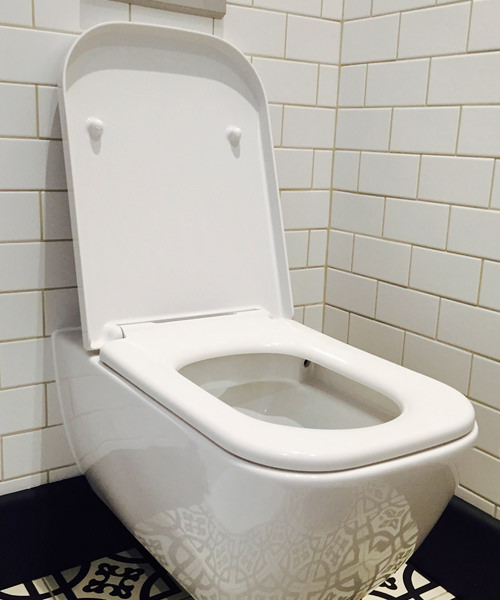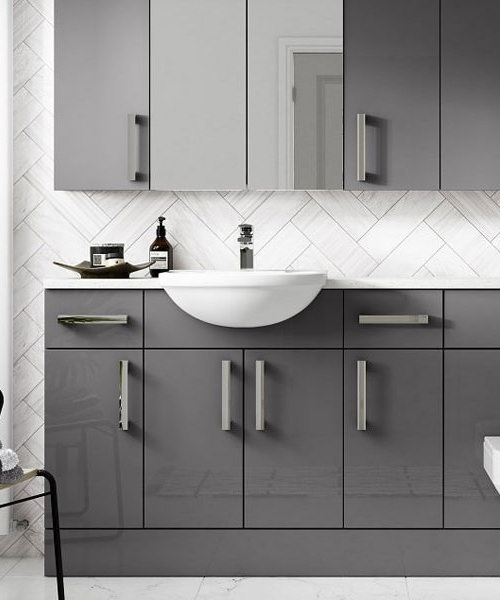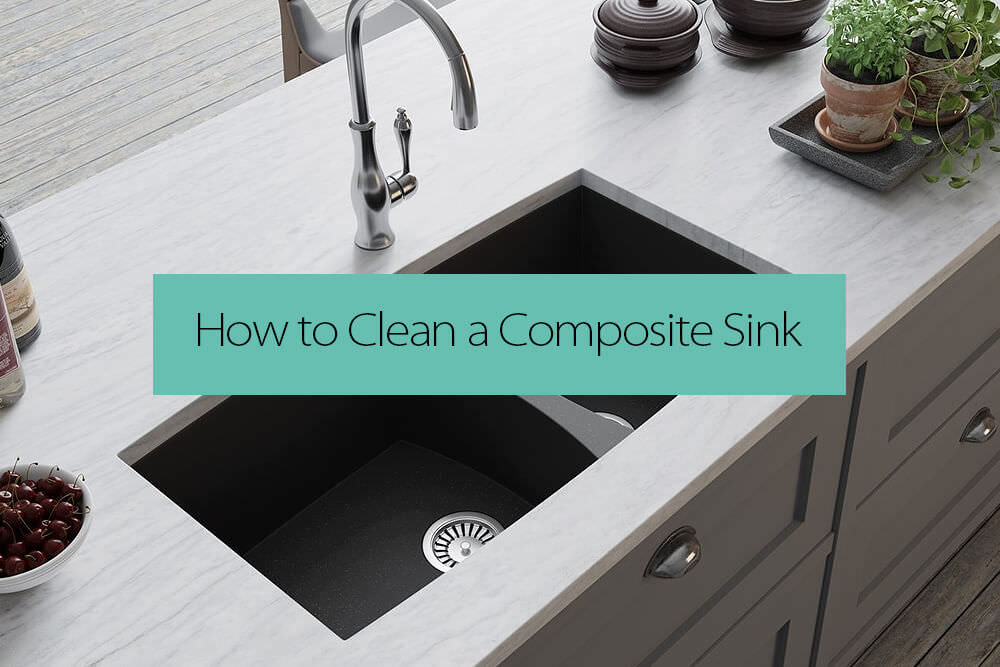
The kitchen sink gets a lot of use every day. From washing up after a meal to bathing small pets and children, your sink does it all. That’s why when the time comes to choose a new sink, many people consider not only the appearance of the sink, but also its durability and how well it functions over time.
For that reason, many homeowners choose to use composite sinks in their homes. Composites are attractive, versatile, durable, and long lasting. They come in a range of colours to suit any kitchen design, as well as in a broad range of sizes and configurations as well.
One thing many homeowners don’t consider, however, when they purchase their sink, is how they’re going to maintain it long term. Composites are well known for being low maintenance, as well as durable, which may be the reason they’re selected in the first place. But, no matter how low maintenance a material is, it still needs to be cleaned on occasion to keep it in its best condition.
Thankfully, cleaning a composite sink is easy, and doesn’t require a lot of special cleansers or equipment, so you can get the job done quickly, any time you want.
What Is a Composite Sink?
Composites are a man made material that is mostly natural stone, held together with pigments and resins for binders. The stone is normally quartz, but is sometimes granite, an igneous rock that contains silica, feldspar, mica, and quartz in varying amounts.
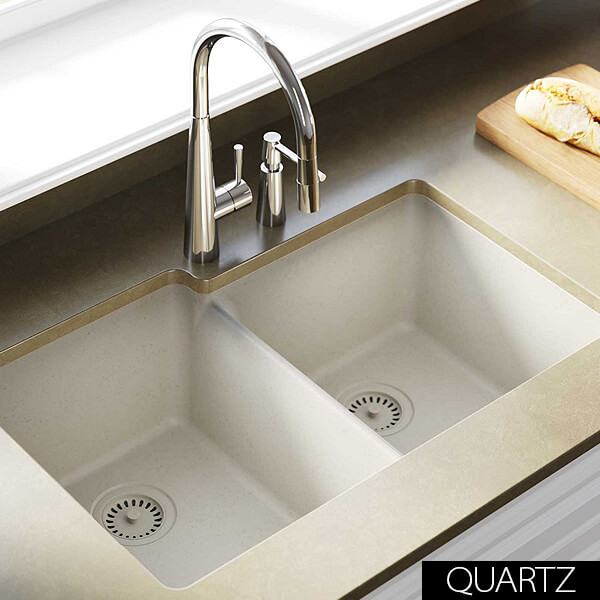
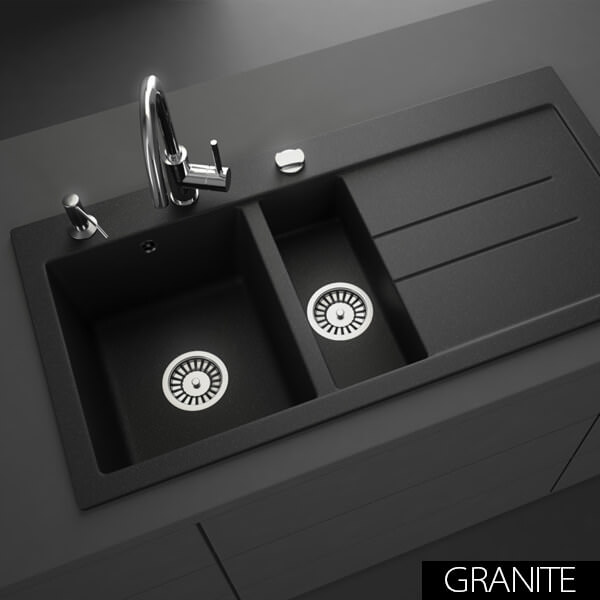
Regardless of whether the sink is quartz composite or granite composite, the cleaning and care the two types of sinks need is identical. The resins that help hold the crushed stone particles together help fill in any micro-pores that would normally be present either in the stone itself or between the various pieces. That resin is very tough, durable, and non-porous, which is what makes a composite sink so long lasting and low maintenance. While a natural stone sink without resins would be a lot of work to keep clean and in good shape, a composite sink is much easier to care for. The resins may only make up 10% of the sink, but they’re what you interact with when you use the sink, and they’re what will help make the sink easy to clean.
Keep in mind that the pigments can vary from sink to sink, however. Some lighter pigments may take on surface stains in a way that a darker pigment will not. This doesn’t mean that the lighter pigments are harder to care for, just that you may need to clean the sink a little bit more often to remove any surface staining than you may need to with a dark-coloured sink.
How to Clean a Composite Sink
Composite sinks are very easy to care for on a regular basis. For daily use, simply rinsing the surface with clean water and wiping it down with a clean, lint-free cloth will suffice for removing any surface dirt and keeping the sink clean.
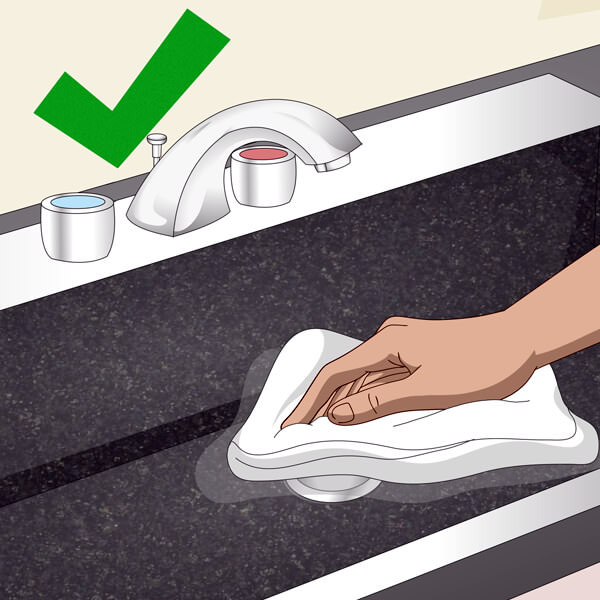
If, however, there are dried food substances, a thicker level of dirt, or any minor surface staining, you may need to do a little more scrubbing to get the sink clean. Thankfully, unlike natural stone sinks, which require a PH neutral cleanser to avoid damage to the surface of the stone, composite sinks can be cleaned with any of your favorite household cleansers. You may want to avoid excessive use of very acidic cleansers, as over time, these can weaken the surface particles of the sink, so while cleaners with vinegar, lemon juice, or citric acid are fine for occasional use, they should be avoided for regular cleaning.
For regular food stains, dish soap, clean water, and a nylon scrub brush are the best materials to use to get the sink clean. Fill the sink with warm, soapy water, and let the food stains soak for up to an hour. Dip the nylon brush into the warm, soapy water, and apply it to the stained areas in gentle circles, then drain the sink and rinse clean. Repeat as necessary.
If your composite sink has limescale staining or hard water stains, these can show up clearly against a dark-coloured sink. For these, you do need to use a diluted vinegar to help remove them. The key is not to use straight vinegar on the sink, but to make a mixture that is 50% water and 50% vinegar. Apply the mixture to the limescale stains, and scrub with a nylon brush until clean. Rinse with clean water.
How to Care for a Granite Composite Sink Ongoing
The good news about having a granite composite sink is that it doesn’t need the kind of daily or even yearly maintenance that a solid granite sink will need. The resins that bind the crushed granite together into a sink help make the sink completely non-porous, so any stains stay on the surface.
For daily care, all you need to do is to rinse the sink out thoroughly after each use. If you have a dark coloured sink and are concerned about water spots, you can use a lint-free towel to dry the sink after each use as well.
Weekly, or as needed if you notice food stains, wash the sink with a mixture of warm water and your favorite dish soap, scrubbing gently with a nylon-bristled brush. This will help dislodge most surface stains, and will help prevent deeper stains from forming.
If you do notice that there are darker stains, or if you have a light-coloured sink that is showing more surface staining, you can clean these with a mixture of 50% bleach and 50% water. Dip a nylon bristled brush into the bleach solution, and use it to scrub the stains. Rinse well with water when you’re done.
Keep Your Sink Clean
Composite sinks are very low maintenance and extremely durable. Many people find that they only need to rinse the sinks to help them look their best. In the event that you do notice hard water stains, or food stains, however, these can generally be removed within a few minutes. Keep your composite sink clean with these tricks to enjoy its beauty for years to come.



